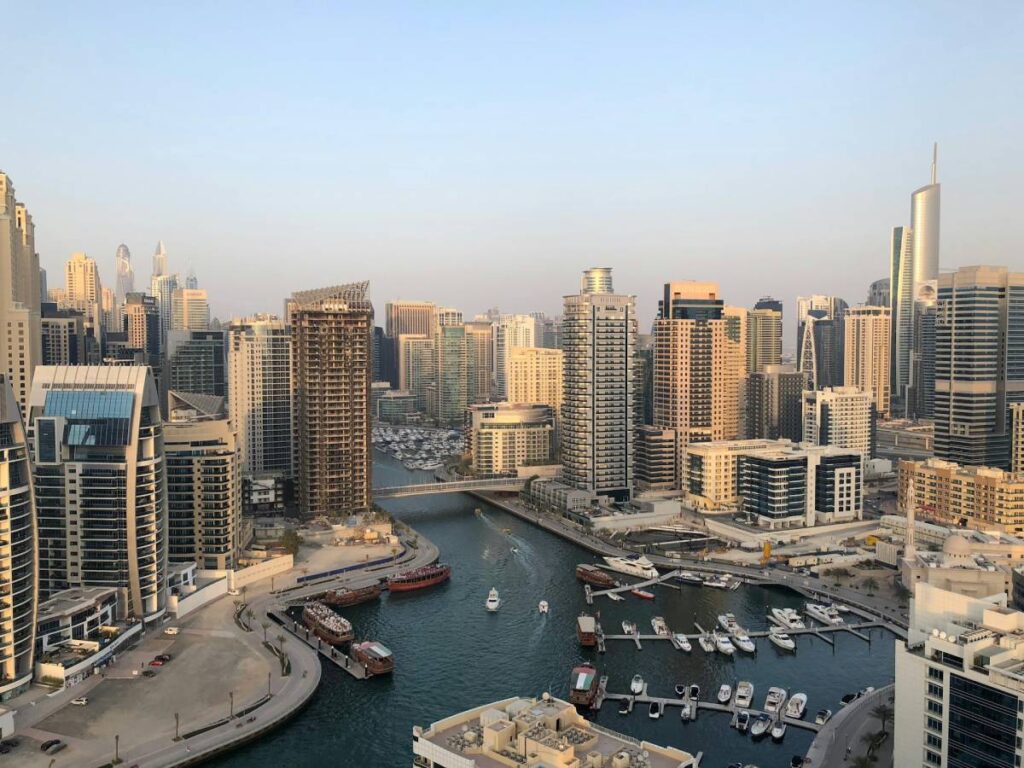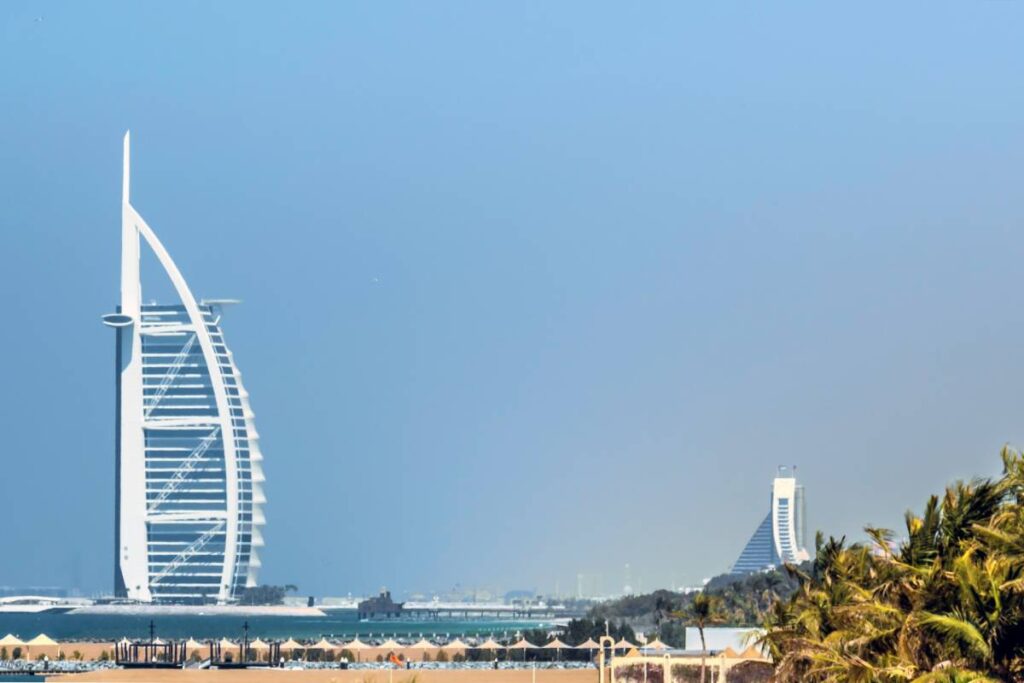

Thinking of buying property in Dubai but not sure where to start? You’re not alone—many property investors and homebuyers are attracted to Dubai’s real estate market for its luxury properties, high rental yields, and world-class amenities.
From residential properties in areas like Dubai Marina and Palm Jumeirah to off-plan properties in emerging locations like Dubai Hills Estate, the opportunities are endless. However, navigating the property buying process can be tricky, especially with legal considerations, such as property ownership, foreign ownership, and property taxes.
As you consider this major investment, we’re here to guide you through it. With our expertise, you’ll be able to choose the right property, understand financing options, and avoid common pitfalls while securing property ownership in the heart of Dubai.
In this article, we’ll cover:
- Dubai Property Buying Tips
- Evaluating developers and securing financing
- Key legal considerations, including the Dubai Land Department and title deed
By the end, you’ll have a clear strategy for buying property in Dubai, ensuring a successful property purchase and making the most of Dubai’s property market!
1. How to Choose the Right Property for Your Needs

One of the essential Dubai property buying tips is selecting the right property, whether you’re buying property for personal use or as an investment. Dubai offers a wide range of options, from luxury properties to more affordable homes. Consider your purpose—living, renting, or investing—before making your decision.
Key factors to consider when choosing a property:
- Location: Areas like Business Bay and Dubai Marina offer excellent rental yields, while Jumeirah Village Circle and Dubai Hills Estate provide family-friendly communities.
- Property Type: Whether you prefer apartments, villas, or off-plan properties, ensure the type aligns with your goals.
- Amenities: Look for properties with world-class amenities like pools, gyms, and nearby transport options.
2. Evaluating the Developer: How to Avoid Risks

Before committing to a property purchase, make sure you evaluate the developer’s reputation. A trustworthy developer ensures the property is built on time and meets quality standards. Always check the developer’s track record to avoid potential risks, especially with off-plan properties.
Things to verify when evaluating a developer:
- Project Registration: Ensure the project is registered with the Dubai Land Department.
- Previous Projects: Check the quality and timely delivery of past developments.
- Legal Documentation: Make sure the developer provides all necessary legal documents, including the title deed.
See Also Dubai Off-Plan Properties
3. Financing Options: Understanding Mortgages and Costs

If you’re not paying in full cash, Dubai offers several financing options for property buyers. However, it’s important to understand the mortgage requirements, such as the down payment and additional costs. Research the best rates to secure favorable terms.
For those not buying property with full cash, Dubai offers various mortgage options. However, understanding the costs is essential:
- Down Payment:
- 20% for UAE residents.
- 35% for foreign ownership.
- Additional Costs:
- Transfer fee (paid to the Dubai Land Department).
- Registration fee for property ownership.
- Maintenance fees for building upkeep.
- Compare interest rates from different banks before choosing a mortgage.
4. Legal Aspects: Ensuring a Smooth Property Purchase

When purchasing property in Dubai, following the correct legal steps is essential. This ensures you have a smooth transaction and secure property ownership. Familiarize yourself with the legal documents required for a successful purchase.
Important legal steps to follow:
- Title Deed: This document confirms your property ownership.
- Objection Certificate: This is needed if you plan to sell the property later.
- Registration: Ensure the property is officially registered with the Dubai Land Department.
5. Property Inspection: Avoiding Hidden Issues

A property inspection is crucial before finalizing your purchase. It helps you uncover potential issues like structural defects or hidden repairs that may cost extra money later. A thorough inspection ensures the property value is worth its market price.
Steps to take before purchasing:
- Inspect the property for any signs of wear or damage.
- Check for issues that might affect the property value.
- For off-plan properties, confirm construction progress and delivery timelines.
6. Understanding Dubai’s Property Market and Taxes

Dubai’s property market is dynamic, with fluctuating property prices and rental yields. It’s essential to stay updated on current market trends and understand the taxes involved. Unlike other countries, Dubai has no income tax, but there are some fees you should consider.
Key tax-related points:
- Property Taxes: Dubai has annual property taxes, including fees for maintenance and utilities.
- Rental Yields: Many areas offer high rental yields, making them attractive to property investors.
- Transaction Fees: Include transfer fees and registration fees, which can vary based on property value.
See Also Dubai Real Estate Market Trends
7. Why Working with a Real Estate Agent is a Smart Move

A professional real estate agent can make the buying property process easier by helping you navigate the market, finding suitable properties, and handling paperwork. They can also offer advice on high rental yields and areas with strong investment potential.
Advantages of hiring a real estate agent:
- Market Knowledge: They are familiar with current market trends and can help find the best deals.
- Legal Assistance: They ensure all legal documents are in place, including the title deed.
- Negotiation Skills: A skilled agent can help you secure a better purchase price.
Key Takeaways About Dubai Property Buying Tips

Buying property in Dubai, whether it’s residential properties or property investment, requires careful planning and consideration. Start by choosing the right property based on your needs, whether for personal use, rental income, or long-term investment.
It’s essential to evaluate the developer’s reputation, ensure proper legal documentation, and be aware of all financing options and costs involved. Additionally, conducting a property inspection and staying updated on Dubai’s property market will help you make an informed decision when buying property in the city.
FAQ
What are the key factors to consider when buying property in Dubai?
Key factors include location, property type, developer reputation, financing options, and understanding the legal process like property registration and taxes.
Can foreign investors buy property in Dubai?
Yes, foreign investors can purchase property in Dubai, especially in areas designated for freehold property ownership, with certain regulations on foreign ownership.


